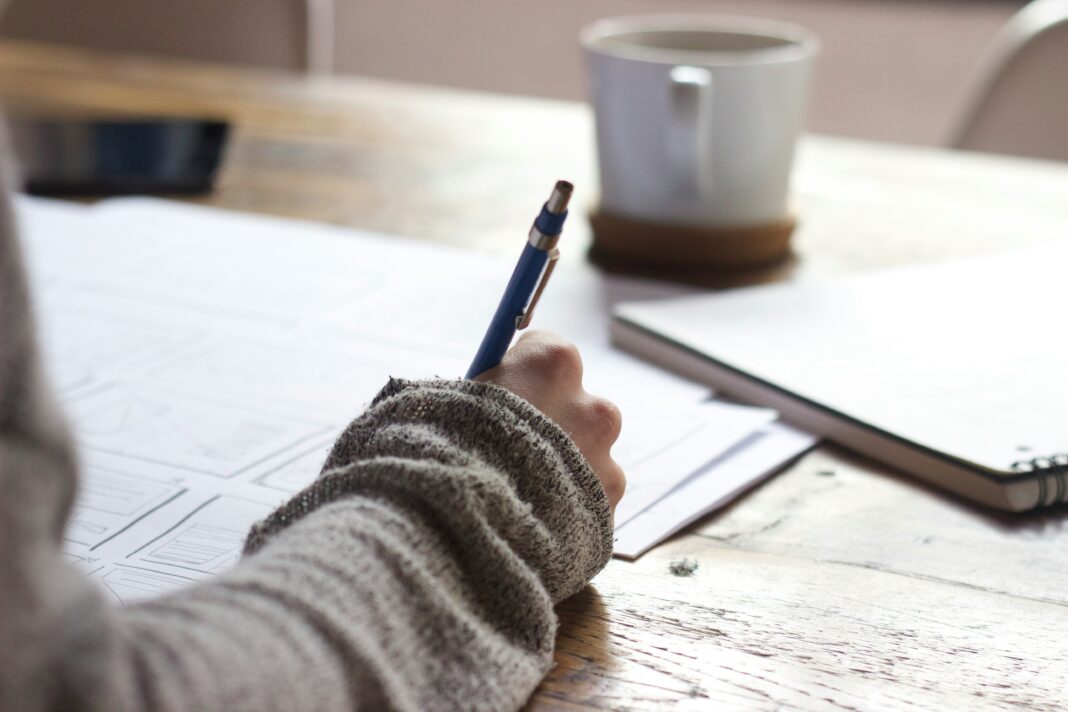With midterms coming up, these next few weeks are crunch time for high school students all over Calgary. As exam season approaches, it is important to get into the habit of mindful studying, and recognizing that whichever study methods you use is much more important than how long you study for.
As a high school student myself, I have written a multitudinous amount of exams. I have a good grasp of which methods allow me to best prepare myself for the most difficult of tests. Through trial and error, I have kept track of which methods gave me the best results, and compiled my knowledge into this post.
Keep in mind that what works for one person will not work for everyone! I suggest experimenting with different study methods, such as the few mentioned below, and establishing a good routine before every exam.
Study Habits to Avoid
-
Using reading as your main study method
A lot of students may feel like their academic efforts are getting them nowhere, despite the hefty amount of time they spend reviewing notes and re-reading their textbooks.
It is important to understand that re-reading material you already have a good comprehension of will not benefit you. You need to apply the knowledge you learn, and re-reading your notes does not allow your brain to practice actively recalling the information.
-
Cramming the night before an exam
I understand that high school students lead busy lives, but postponing your studying to the night before a final will only result in the feeling that you could’ve done better with more time. I’m in no position to write about this habit, since I do it quite often as well.
Once your teacher mentions the date for an assessment, note it down and try to plan chunks of time dedicated to studying at least a few days before.
-
Studying in a distraction-filled environment
I’ve fallen victim to this multiple times. Studying with my phone near me is one of the biggest reasons why I get distracted and lose focus. Some students review material while watching TV, which is truly a talent. From personal experience, I have found that it’s hard to focus and retain information in an environment with loud noises and multiple distractions– such as phones and TVs.
The Best Study Methods For Each Subject
Now that we have established what not to do, it is vital that we learn about some good study methods. These methods are what works for me, and I hope they help you as well!
-
Math, Physics, & Chemistry: Doing Practice Questions/Exams
This one may seem obvious, but the number of times I’ve seen people studying for math by reading the textbook and looking at the questions is one too many. I’ve also seen a lot of people look at a question and assume they know how to solve it without actually attempting to write it out.
Doing millions of practice questions will quickly help you get a lot better at the subject. Ensure to attempt the most difficult ones as well! You will find yourself getting better with every question.
For the sciences, make sure to review the concepts from in-class labs before the exam as well. Try making up possible exam questions and see if you can answer them.
-
Biology and Social Studies: Flashcards
Flashcards are great tools for memorizing terms and dates at a rapid pace. You don’t have to put too much effort into making them as well. I have found that making a flashcard every time you learn a new term, the name of an important person, or an important date will save you from having to make 100 flashcards a few days before the exam.
To keep them organized, binder clips will become your best friends. There are also flashcard holders available in stationery stores and online, but these may be a little more expensive.
Going through your flashcards multiple times and switching up their order will benefit you the most. Also, try flipping them over and guessing the term based off of the definition.
-
English & Second Languages: Blurting
Blurting is a study method in which you grab a piece of paper and write out everything you know about the subject. When studying for an English exam, practice writing out paragraphs about the exam material. Get into the habit of making structured essays in shorter amounts of time. If you are being tested on a novel, think about the key themes presented in the novel and important plot points.
For second languages, I have found that writing a few paragraphs, in the language I’m studying, for the topic we are being tested on has helped me find where I’m struggling and what I need to review.
Final Words
Finding out which study methods that can benefit your learning style will take time and experimentation. Don’t be discouraged over a single bad grade and use it as motivation to do better on the next exam. If one method doesn’t work out, try another! You’ll never know if something works for you if you don’t try it first.
Good luck on all your future exams!
Sources: 1


Well written
Thank you!
Thank you for this insightful information! I will be sure to try these next time I am caught in a metaphorical “Pickle”.
No problem James!
Comments are closed.